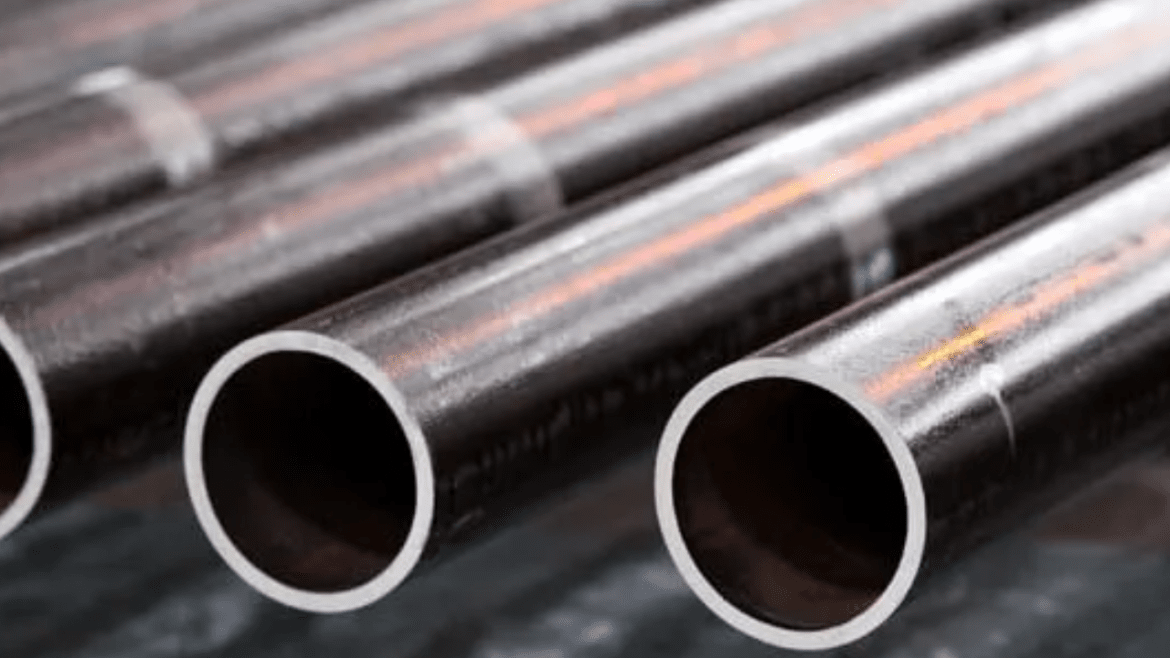Electric Resistance Welded (ERW) pipes are pillars of steel pipe manufacturing, exemplifying efficiency, adaptability, and reliability. This form of steel pipe is made by applying electric current to the margins of flat steel coils or plates, resulting in a seamless and durable weld. ERW pipes have formed the backbone of many sectors, with a slew of benefits that make them the favored choice for a variety of applications.
The production method of ERW pipes assures excellent dimensional accuracy, making them perfect for applications requiring precision. Their cost-effectiveness, which stems from an efficient and automated manufacturing process, makes ERW pipes suitable for a wide range of projects. This article also helps you to know what does erw stand for in pipe. The strength of the weld seam improves overall structural integrity, which contributes to their dependability in challenging situations.
Applications of ERW Pipes
ERW stands for Electric Resistance Welded. In the context of pipes, ERW refers to a type of coil or plate that forms a longitudinal welded seam. ERW pipes are widely employed in different industries, including building and transportation. The detailed application of ERW in many fields is described below:
Construction Industry
ERW pipes are essential for building foundations, bridges, and other infrastructure projects in the construction business. ERW pipes, known for their strength, cost-effectiveness, and versatility, play an important role in supporting structural elements such as columns, beams, and purlins, making them essential in constructing strong and enduring structures. Their versatility and cost-effectiveness make them a preferred choice for building frameworks, bridges, and other infrastructure projects.
Oil and Gas Sector
ERW pipes are highly versatile in the oil and gas industry, where they are used to carry crude oil, natural gas, and processed products. ERW pipes are well-known for their strength, longevity, and capacity to tolerate high-pressure situations. They make important contributions to pipeline systems. Their dependability in efficiently transporting energy supplies emphasizes their critical role in keeping the oil and gas industry running.
Water Supply and Distribution
ERW pipes are extremely versatile in the water supply and distribution sector. Their corrosion resistance and endurance make them ideal for transporting potable water in municipal and utility systems. Cost-effective and dependable, ERW pipes serve an important role in guaranteeing a regular and safe water supply, helping to establish and maintain efficient water infrastructure for communities and industries alike.
Agriculture and Irrigation
In agriculture and irrigation, ERW pipes show great adaptability by efficiently transporting water for crop irrigation. ERW pipes, known for their endurance and resistance to environmental variables, serve an important role in supporting agricultural activities. Their cost-effectiveness, dependability, and convenience of use make them essential components in irrigation systems, contributing to crop efficiency and total agricultural productivity.
Automotive Industry
The automobile industry benefits from ERW pipes’ adaptability, as they are used in a variety of applications such as exhaust systems, frames, and chassis components. ERW pipes, known for their strength and formability, play an important role in the creation of complicated shapes required for vehicle design. Their low cost and dependability make them a popular alternative for producing components that contribute to the structural integrity and performance of cars.
Aerospace Industry
In the aerospace industry, ERW pipes demonstrate their versatility by being used in a variety of applications, including the manufacturing of aircraft frame components. Their excellent strength-to-weight ratio and dependability help to meet the severe standards of aircraft manufacturing. ERW pipes play an important part in the development of structural elements that ensure aircraft safety, durability, and performance in this technologically demanding industry.
Mining Industry
ERW pipes are versatile in the mining industry, where they are used to transfer commodities, water, and fluids. ERW pipes, known for their strong construction and resilience to abrasion, are ideal for the harsh environments found in mining and mineral extraction. Their dependability and endurance make them critical components in ensuring the effective and safe movement of minerals inside mining operations.
Sum Up
The broad usage of ERW pipes in various industries demonstrates its versatility and dependability. ERW pipes have a wide range of uses. Engineers and project managers who want efficient and long-lasting solutions favor them because of their low cost, ease of manufacture, and corrosion resistance. As industries progress, the value of ERW pipes is projected to grow, contributing to the advancement and sustainability of numerous sectors around the world.
